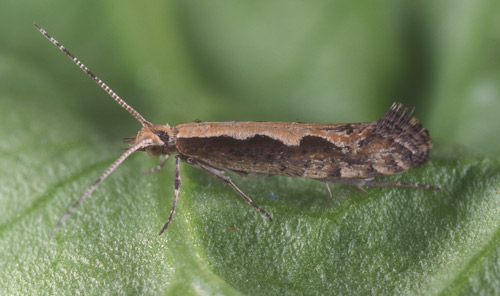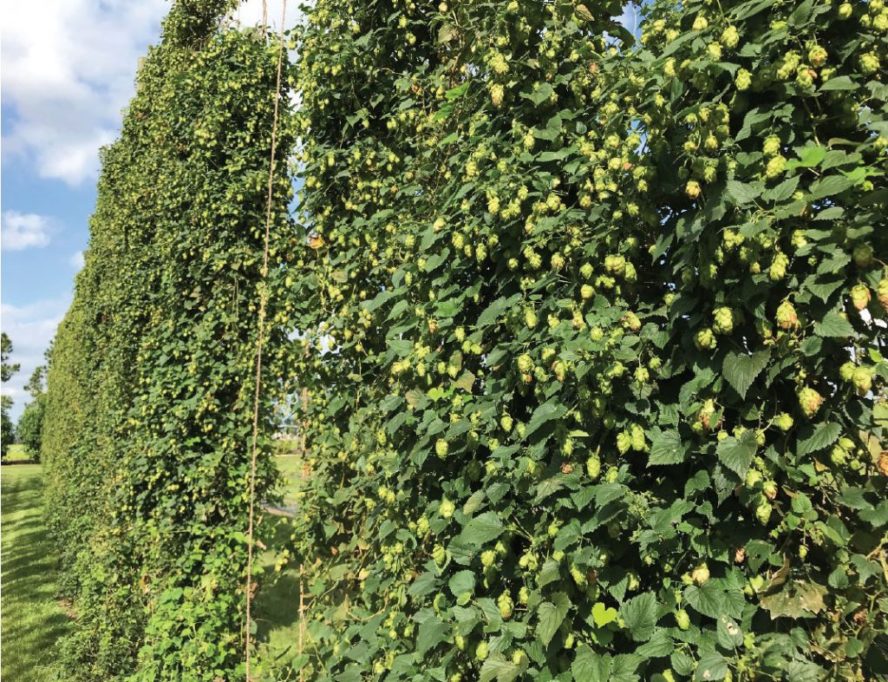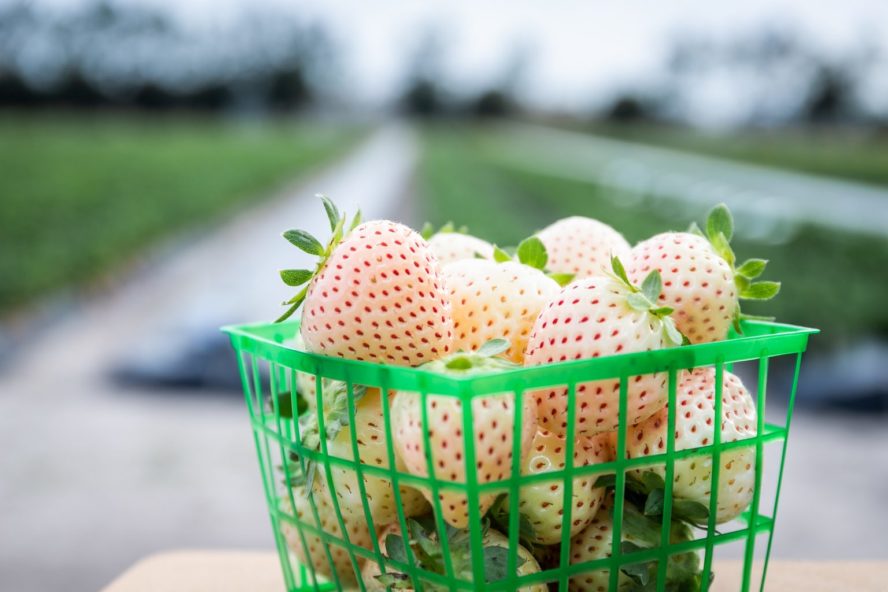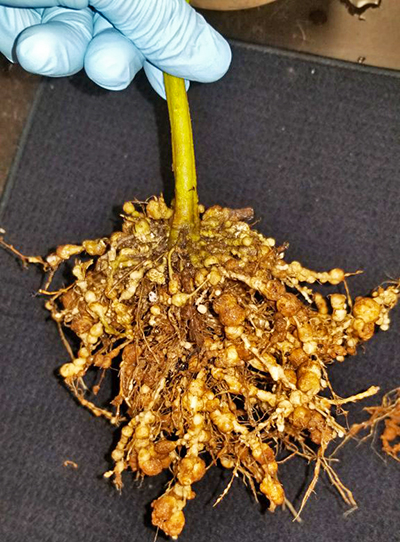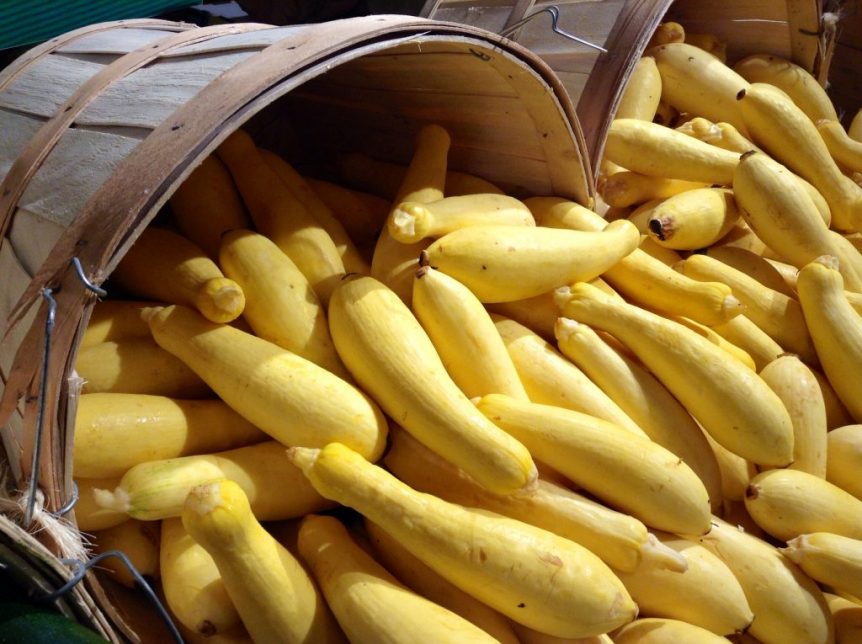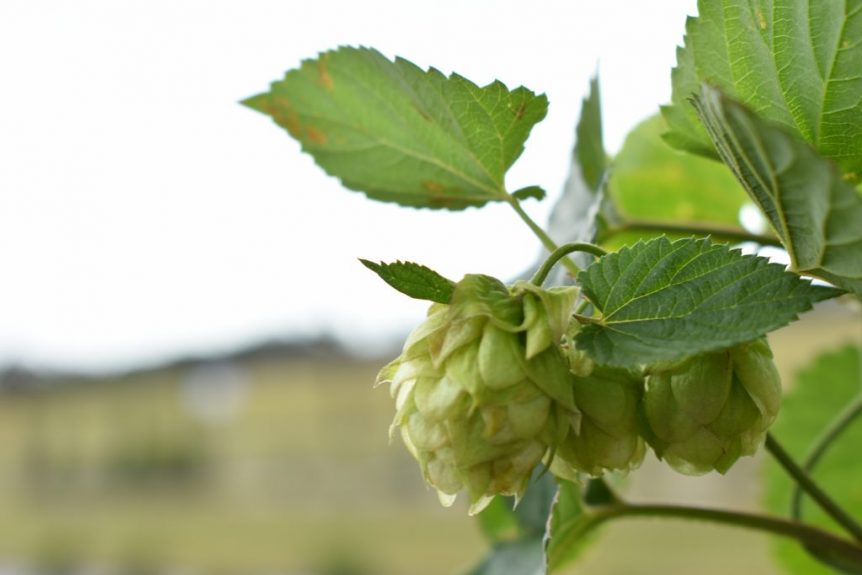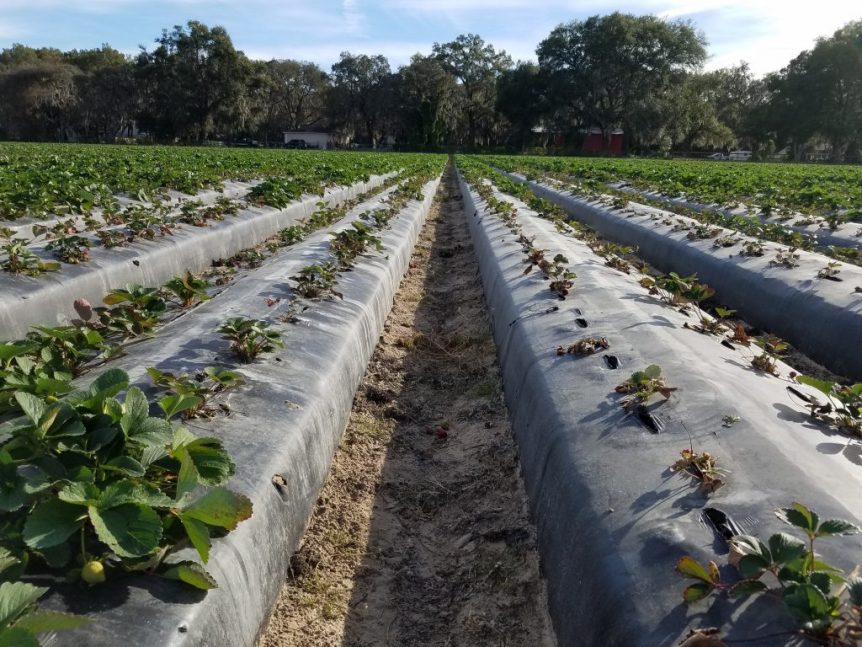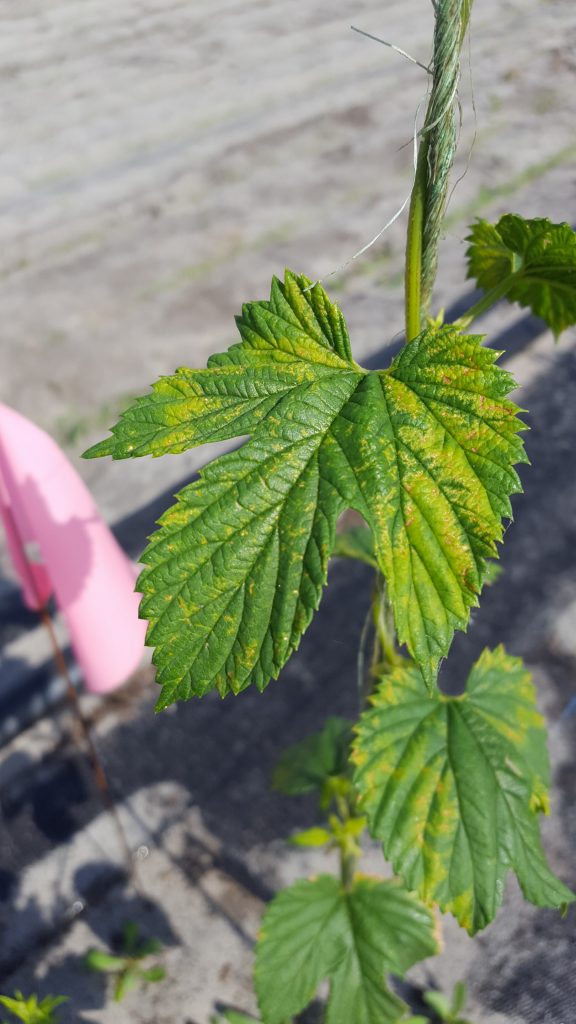By Clint Thompson Brassica growers rely almost entirely on insecticides to manage diamondback moth (DBM) infestations. However, the moths have shown the ability to develop resistance to a broad range of insecticides, says Hugh Smith, an associate professor of entomology and nematology at the University of Florida Institute of Food and Agricultural Sciences (UF/IFAS) Gulf Coast Research and Education Center. … Read More
UF/IFAS Research: Diseases Minimal in Hops
By Clint Thompson Potential hops producers in Florida can rest easy knowing diseases are minimal, if they start with clean material. Gary Vallad, professor of plant pathology at the University of Florida Institute of Food and Agricultural Sciences (UF/IFAS) Gulf Coast Research and Education Center, discusses what findings his research has yielded so far in this up-and-coming commodity. “The only … Read More
Pineberry Enjoying Sweet Success in Florida
By Clint Thompson Interest continues to increase in the Florida Pearl strawberry, also known as the white strawberry and the pineberry. University of Florida (UF) strawberry breeder Vance Whitaker provided an update on acreage and what is expected for next season. “The pineberries have done well this year from all accounts. We expect an increase in acreage next year. I … Read More
Guava Root-Knot Nematode More Aggressive, Reproduces Faster
By Clint Thompson The guava root-knot nematode can reproduce faster and be more aggressive than other nematode species. Those are two factors that all specialty crop producers should be mindful of. Johan Desaeger, assistant professor of entomology and nematology at the University of Florida Institute of Food and Agricultural Sciences Gulf Coast Research and Education Center, discussed his findings with … Read More
UF Research Shows Best Fungicides for Downy Mildew
By Karla Arboleda Gary Vallad, an associate professor at the University of Florida (UF), described the magnitude of downy mildew disease on specialty crops. “It (downy mildew) just kind of jumps from crop to crop,” Vallad said. “It flies around and moves from Florida all the way up the east coast.” In response to the level of concern about downy … Read More
Creating Blackberry Varieties for Florida
The team at the University of Florida Institute of Food and Agricultural Sciences Gulf Coast Research and Education Center (GCREC) works on a multitude of crops historically grown in the Central Florida region. However, GCREC researchers have also been dedicating their time to finding new alternative crops for Florida. One of those crops is blackberries. Zhanao Deng, professor of ornamental … Read More
A Look Inside the GCREC
Faculty members at the University of Florida Institute of Food and Agricultural Sciences (UF/IFAS) Gulf Coast Research and Education Center (GCREC) pride themselves on providing cutting-edge research for Florida’s agriculture industries. Located in Wimauma, the 475-acre facility sits in the heart of Hillsborough County. The center features large fields of research plots, laboratories, educational programs and space for student living. … Read More
Be Aware of Pests in Hops
By Karla Arboleda As the Florida hops industry continues to steadily expand, growers should be aware of some new insights on the crop’s cultivation. Although hops research and the general hops industry are fairly new to Florida, in comparison to other North American regions, researchers have found a variety of different pests that show up in hops plants. According to … Read More
Managing Nematodes without Methyl Bromide
By Johan Desaeger Plant-parasitic nematodes are some of the most difficult pests or diseases that growers in Florida are facing. They are difficult to recognize, are often confused with other biotic or abiotic problems, and can cause total crop loss in many fruits and vegetables. This is especially true in Florida’s warm and sandy soils, where nematodes, such as root-knot … Read More
Nematodes in Florida Hops
By Karla Arboleda Florida conditions can cause crops to have increased problems in comparison to other regions, and it’s no different for hops. Microscopic nematodes are common all over the world, specifically in vegetables. Across Florida, hops growers have found root-knot nematodes in their crops. Johan Desaeger, a nematode researcher at the University of Florida Institute of Food and Agricultural … Read More
- Page 2 of 2
- 1
- 2

